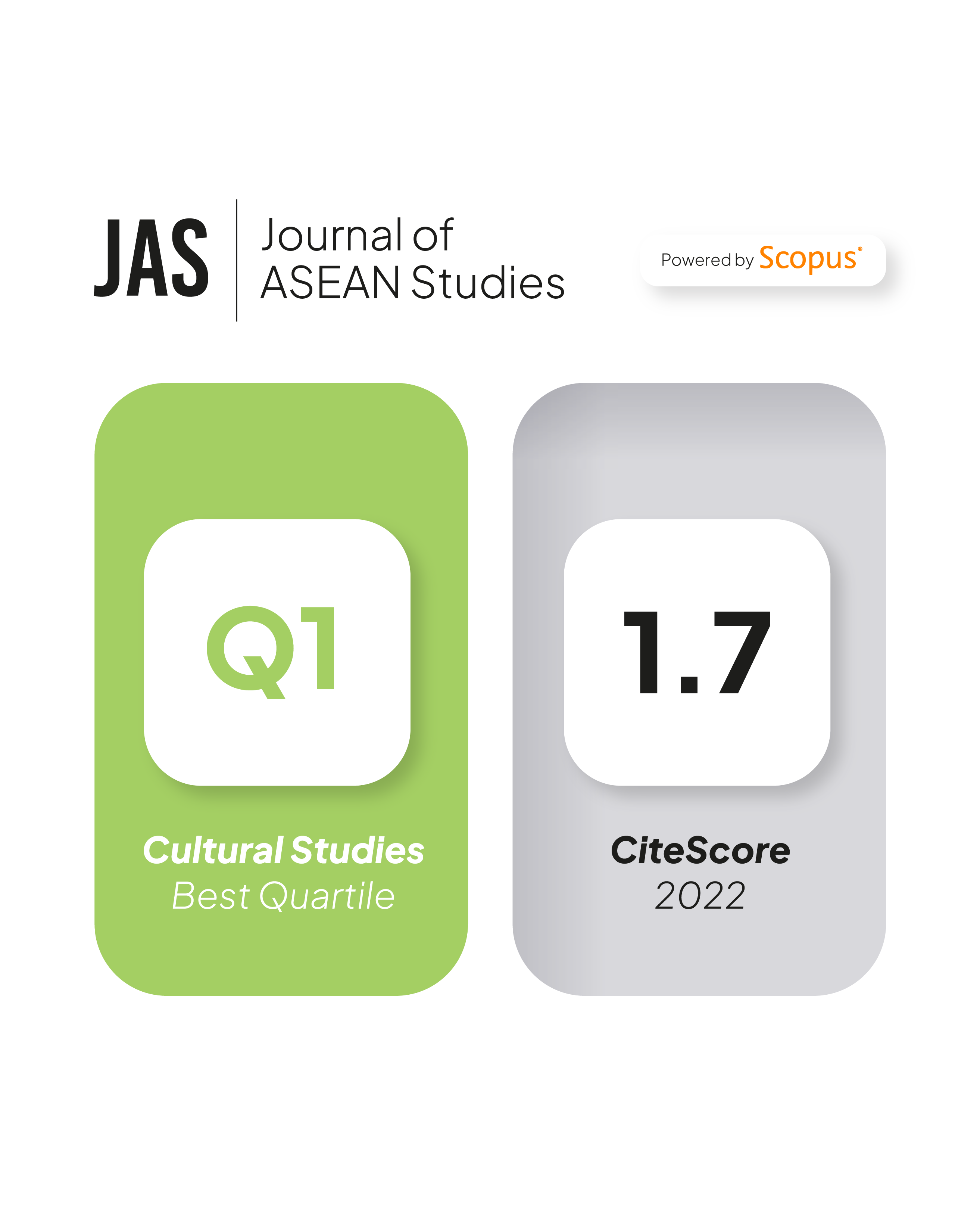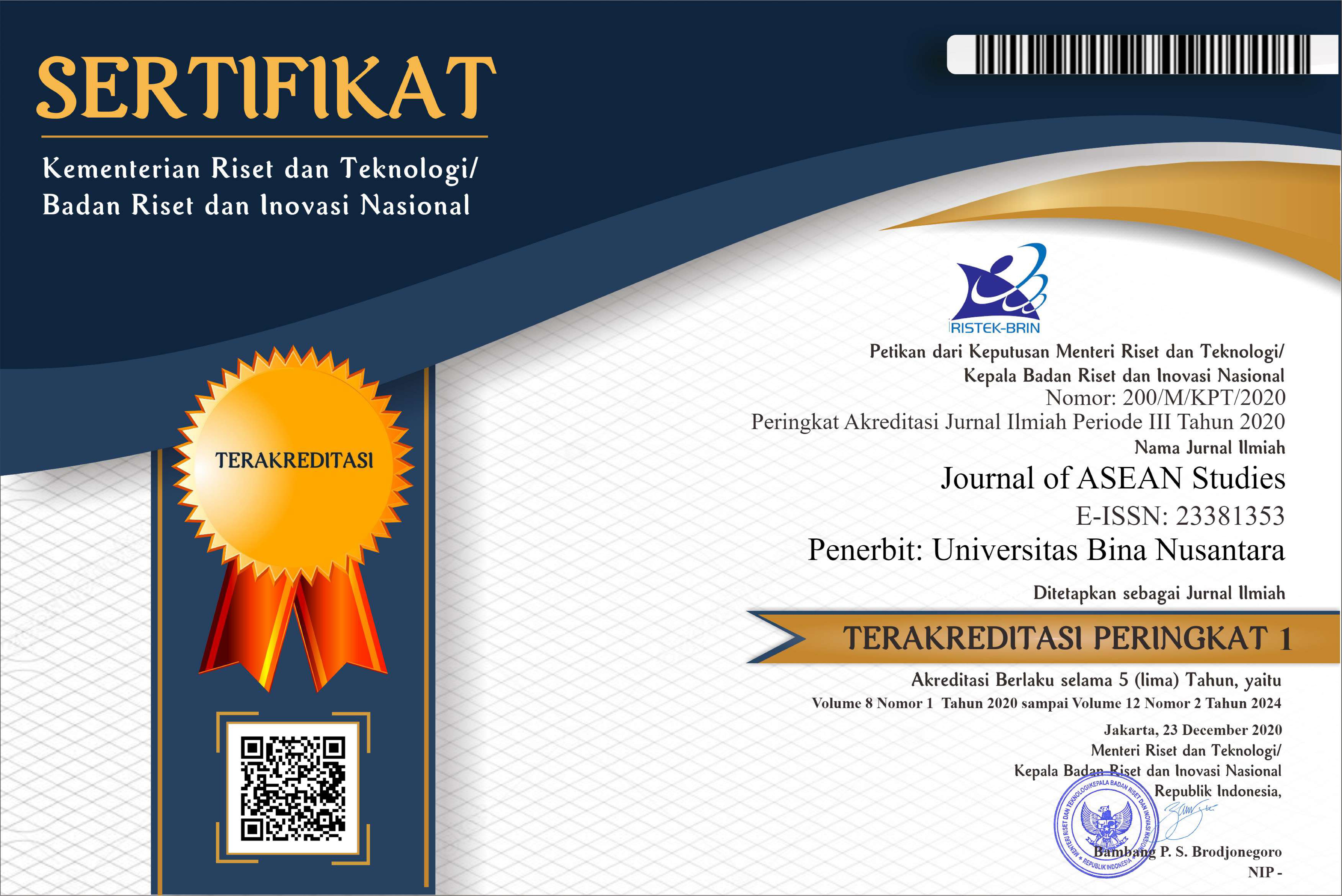Night Market from H. Lefebvre’s Space as Practiced: The Case of Davao City, Philippines
DOI:
https://doi.org/10.21512/jas.v6i2.4946Keywords:
Roxas Night Market, space as practiced, Lefebvre, Foucault, powerAbstract
This paper explores the Roxas Night Market in Davao City as practiced space. Guided by Lefebvre’s (1991) notion of space, the night market is a result of actual and evolving activities of vendors as they subsist in the area for their livelihood, interpret and apply the rules set by the Local Government Unit (LGU) of Davao, and manage their spaces as response to emerging experiences such as the three-month rule of the LGU, and bomb blast in 2016. Given that vendors try to maximize their lot and capitalize on their experiences as survivors of bombing incident, they have demonstrated ways of extending their stay in the night market and invoked their new-found identity as symbols of resilience. Such actuations, in turn, reveal the vendors’ creativity and capacity to rise above the rules of the LGU, and the bombing incident. When gleaned from the perspective of Foucault’s power as discipline and transcendence (1977), the way vendors convert the night market into an arena of practice also underscores their agency to conversely discipline the LGU by demanding that the city administration should do its task in securing the area and provide alternative spaces for the increasing number of vendors in the City.
Plum Analytics
References
Bourdieu, P. (1977). Outline of a theory of practice. (R. Nice, Trans.). New York, NY: Cambridge University Press.
Dovey, K. (1999). Framing places: Mediating power in built form. New York, NY: Routledge.
Foucault, M. (1977). Discipline and punish: The birth of prison. (A. Sheridan, Trans.). New York, NY: Vintage Books.
Giddens, A. (1979). Central problems in social theory: Action, structure and contradiction in social analysis. Los Angeles, CA: University of California Press.
Hadfield, P. (2014). The night-time city. Four modes of exclusion: Reflections on the urban studies. Urban Studies, 1-11. DOI: 10.1177/0042098014552934
Hart, K. (1973). Informal income opportunities and urban employment in Ghana. Journal of Modern African Studies, 11(1), 126-142.
Lefebvre, H. (2014). The production of space (1991). In J. J. Gieseking, W. Mangold, C. Katz, S. Low, & S. Saegert (Eds.). The people, place, and space reader (1st ed., pp. 289-294). New York, NY: Routledge.
Low, S. (2017). Spatializing culture: The ethnography of space and place. New York, NY: Routledge.
Milgram, L. B. (2014). Remapping the edge: Informality and legality in the Harrison Road Night Market, Baguio City, Philippines. City and Society, 26(2), 153-174. https://doi.org/10.1111/ciso.12038
Nirathron, N. (2006). Fighting poverty from the street: A survey of street food vendors in Bangkok. Bangkok, Thailand: International Labour Office.
Peralta, J. T. (1996). Ethnography field manual. Quezon, Manila: National Commission for Culture and the Arts.




















